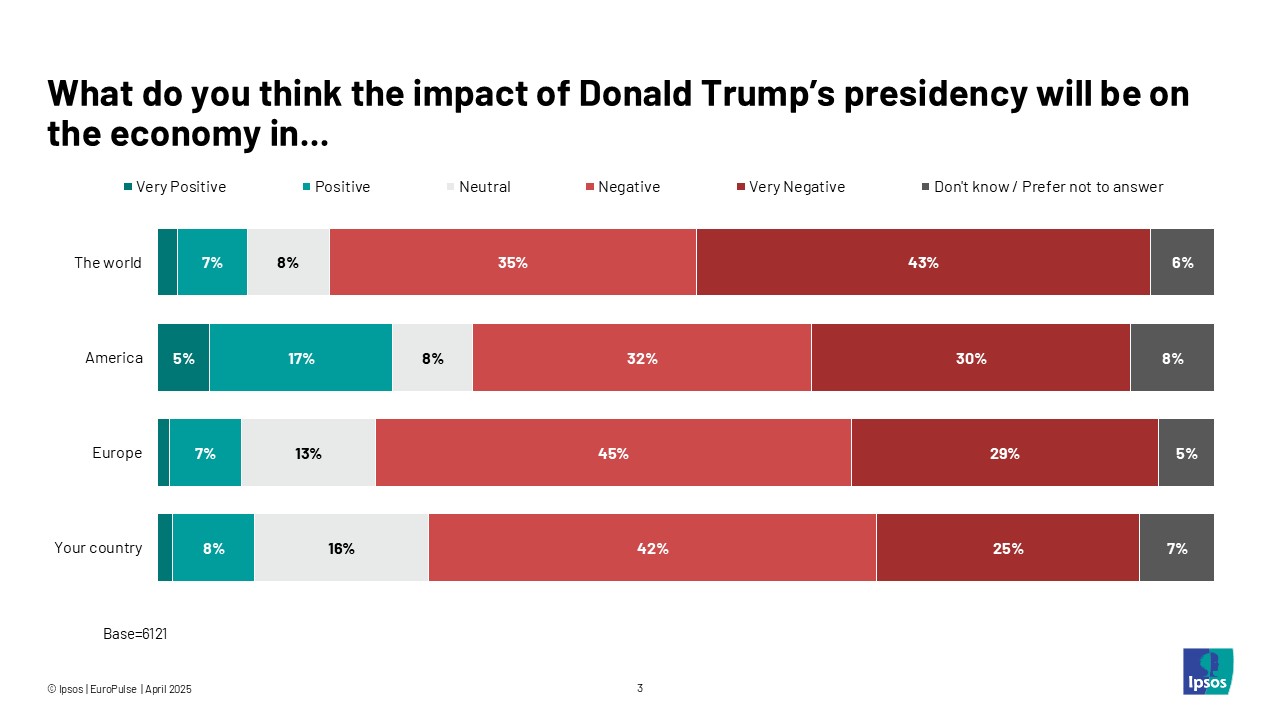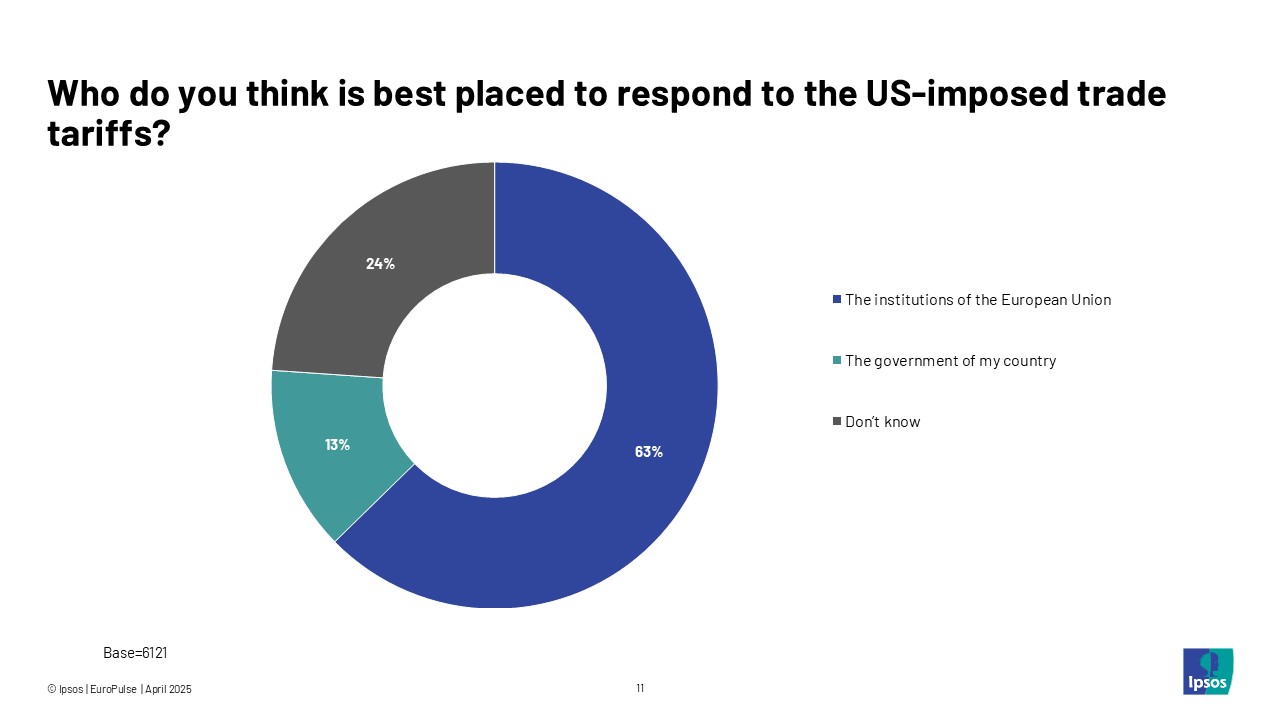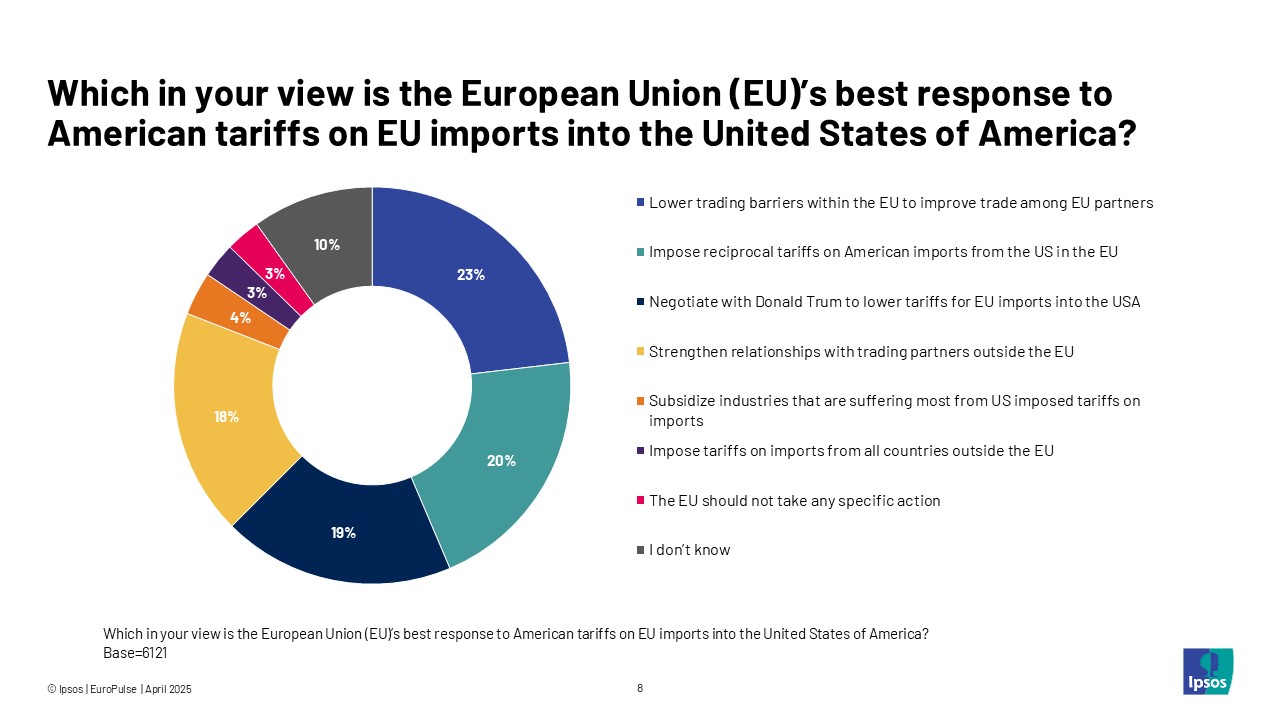After Trump’s tariff threats, Europeans rally for economic resilience
On Friday the American President Donald Trump threatened the EU with 50 Percent Tariffs - more than double the original. “Our discussions with them (the EU) are going nowhere!” wrote Trump on Truth Social. European leaders responded promptly: The European Union's Trade Commissioner Maros Sefcovic said, the EU is committed to securing a trade deal that works for both and is based on “respect” and not “threats” but the EU is also read “to defend our interests." France's Trade Minister Laurent Saint-Martin also called for “de-escalation” but underlined readiness “to respond."
European citizens and leaders are confronting the question of the EU’s ability to defend its economic interests on the global stage. Recent data from Ipsos’ EuroPulse reveals a deeply concerned European public, wary of the economic fallout and calling for resilience, solidarity, and strategic leadership from EU institutions.
Trump’s Presidency sparks economic worries in Europe
There is widespread pessimism regarding Trump’s presidency on the economy. A striking 78% of respondents foresee a negative effect on the global economy, while 74% anticipate damage to the European economy specifically. Concern also extends across the Atlantic, with 62% predicting adverse consequences for the U.S. economy itself.

Swedish respondents expressed the highest level of concern, with 57% predicting a “very negative” impact. The anxiety is not uniform across all demographics—women (78%) and Gen Z (75%) were more apprehensive than men (70%) and Baby Boomers (72%), reflecting a generational and gendered sensitivity to economic uncertainty.
Europeans look to EU Institutions to handle U.S. trade conflict

Perhaps most significantly, 63% of Europeans believe that the EU institutions, not national governments, should take the lead in managing U.S.-EU trade disputes. This sentiment is especially strong in the Netherlands (76%), with more moderate support in countries like Croatia (46%).
How Should Europe Respond?
Faced with tariff threats, Europeans are thinking strategically. While a majority support a coordinated EU response, ideas vary on the path forward:
- 23% favour enhancing intra-EU trade by lowering internal trade barriers.
- 20% advocate for reciprocal tariffs targeting the United States.

Country-specific preferences highlight differing national priorities. Croatians (25%) are most in favour of boosting internal trade, while 29% of French respondents lean toward retaliation. Gender and generational divides persist, with women (26%) and Gen Z (25%) more likely to support internal cohesion through trade facilitation.
The real-world costs of trade war
Trump’s rhetoric may be political, but Europeans foresee tangible consequences:
- 94% expect higher prices, especially in Sweden (98%).
- 88% anticipate job losses, with Spain (93%) the most alarmed.
- 85% predict lower wages, again highest in Spain (91%).
- 92% forecast an overall economic slowdown, with 97% of Spaniards bracing for a downturn.
This widespread concern signals not just fear of tariffs, but a call for preparedness. Citizens across Europe are urging institutions to buffer their economies, coordinate policy, and build resilience, not just in reaction to Trump, but in anticipation of an increasingly volatile global landscape.
Charting a European response to Trump’s tariff threats
By Christine Tresignie
The EuroPulse data clearly shows that Europeans see Donald Trump’s economic policies as a threat. But more importantly, they see the European Union as the best line of defence. Whether it’s about preserving jobs, ensuring price stability, or maintaining trade strength, people are looking to Brussels, not Rome or Paris, for answers.
Here’s what I believe the EU should prioritise:
- Strengthen internal trade. Make the EU market more seamless and attractive to its own producers and consumers.
- Lead with unity. The public clearly supports a centralised EU response.
- Prepare for long-term shifts. This isn’t just about Trump, it’s about global economic power realigning. Europe should adapt.
If the EU can channel public concern into policy agility and solidarity, it won’t just survive the storm, it will emerge stronger.



